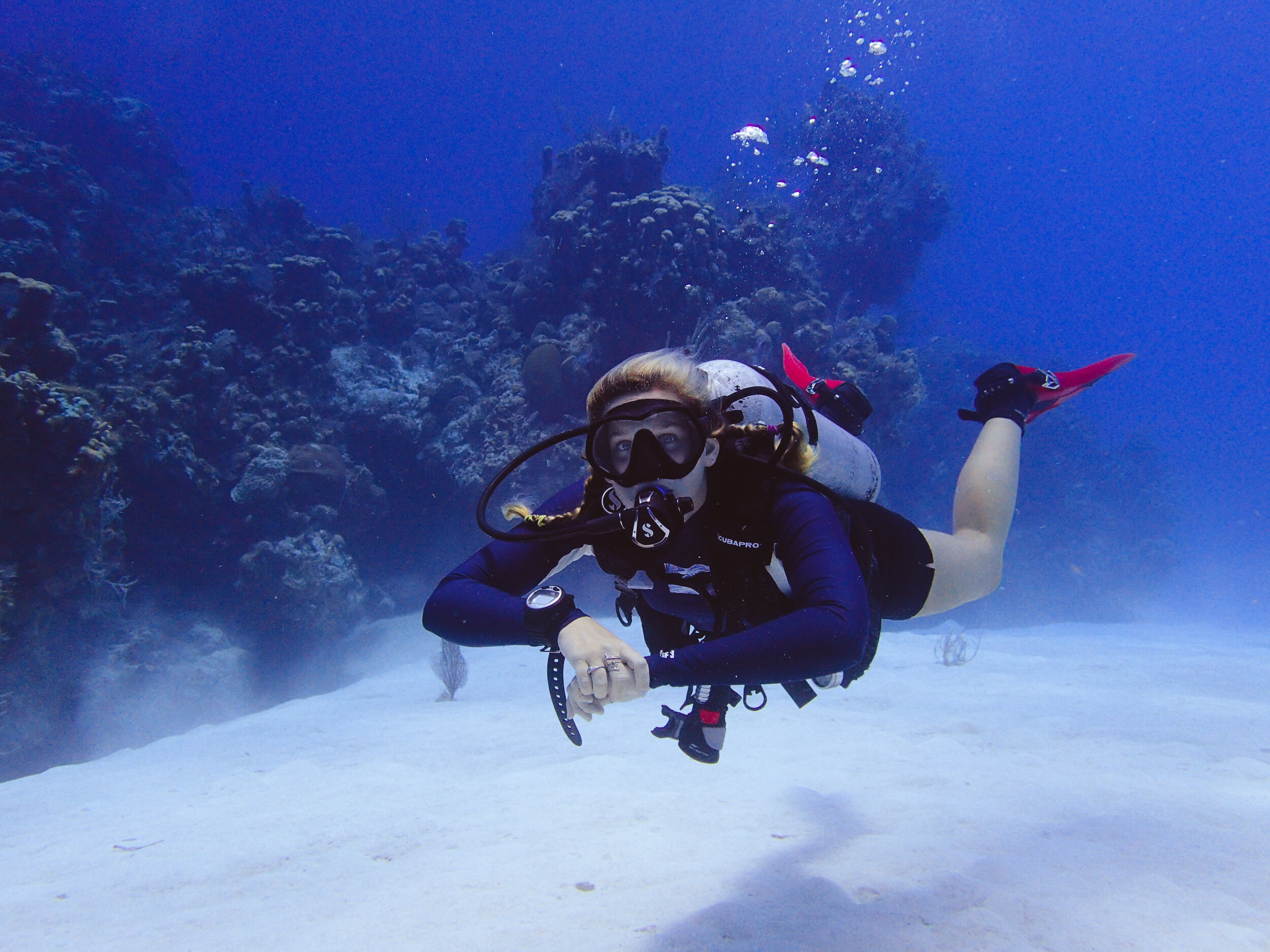Aquaculture: An interview with Lauren Lapham
BY STEPHANIE MACDONALD
Meet Lauren, she recently earned her masters in fisheries and aquatic sciences from the University of Florida. As a student, she had the opportunity to work in a lab focused on invasion ecology and took part in fisheries research. Lauren's research focused on determining the potential invasiveness of Alligator Gar while assisting with the risk assessment of non-native fish and amphibians.
HEY LAUREN, THANKS FOR CHATTING WITH US, PLEASE TELL US A LITTLE ABOUT YOURSELF?
Thank you for talking with me! I earned my masters in fisheries and aquatic sciences while working at the University of Florida Tropical Aquaculture Laboratory.
COULD YOU TELL US A LITTLE ABOUT YOUR BACKGROUND IN FISHERIES?
The lab I worked in focused on invasion ecology while allowing me to take part in fisheries research. My research focused on determining the potential invasiveness of Alligator Gar and the risk assessment of other native and non-native fish.
WHAT DO YOU THINK ARE THE MOST IMPORTANT ASPECTS IN MARINE FISHERIES?
I think some of the most important aspects of marine fisheries are adaptive management plans and fisheries and aquaculture research. Adaptive management plans are informed by research and allow for sustainable and productive fisheries while protecting fish habitat and ecosystem health. Management plans include fishery regulations, habitat monitoring, outreach programs, and stock assessments. Stock assessments and enhancements support fisheries and ecosystem health, augmenting commercial fisheries while protecting stocks. Aquaculture research informs responsible stock enhancements through the management of stock health and genetics. Fisheries research informs the optimal stocking size for survivorship and identifies emerging issues and progress.
COULD YOU TELL US ABOUT FISH FARMING? IT'S OFTEN CONTROVERSIAL. WHAT ARE YOUR THOUGHTS?
Aquaculture is the breeding, rearing, and harvesting of animals and plants in aquatic environments. Aquaculture is an increasingly important source of seafood and a sustainable way to produce protein and replenish fisheries stocks while supporting commercial and recreational fisheries.
Criticisms of aquaculture include the culture of non-native fish and the impacts of improper effluent dispersal. The introduction, escape, and establishment of non-native fish can potentially result in competition with native species for resources. Farm effluent can decrease the water quality of the surrounding environment if not mitigated properly. Management practices and guidelines, informed by research, set federal and state standards to control effluent and mitigate the risk of escape for non-native fish.
Aquaculture science and research actively contributes to management decisions and has increased the sustainability and environmental benefits of the practice. For example, traditional fish feeds contain a high percentage of fishmeal and fish oil, a sustainability issue as it is partially sourced from fisheries stocks that are under high demand. Feeds eliminating or reducing these ingredients have been evaluated for nutritional balance, growth, and survival, with success.
WHAT DO YOU HOPE THE FUTURE HOLDS FOR YOU?
I hope my future holds further opportunities to be involved with research regarding freshwater and marine fisheries, in the field and laboratory setting.


